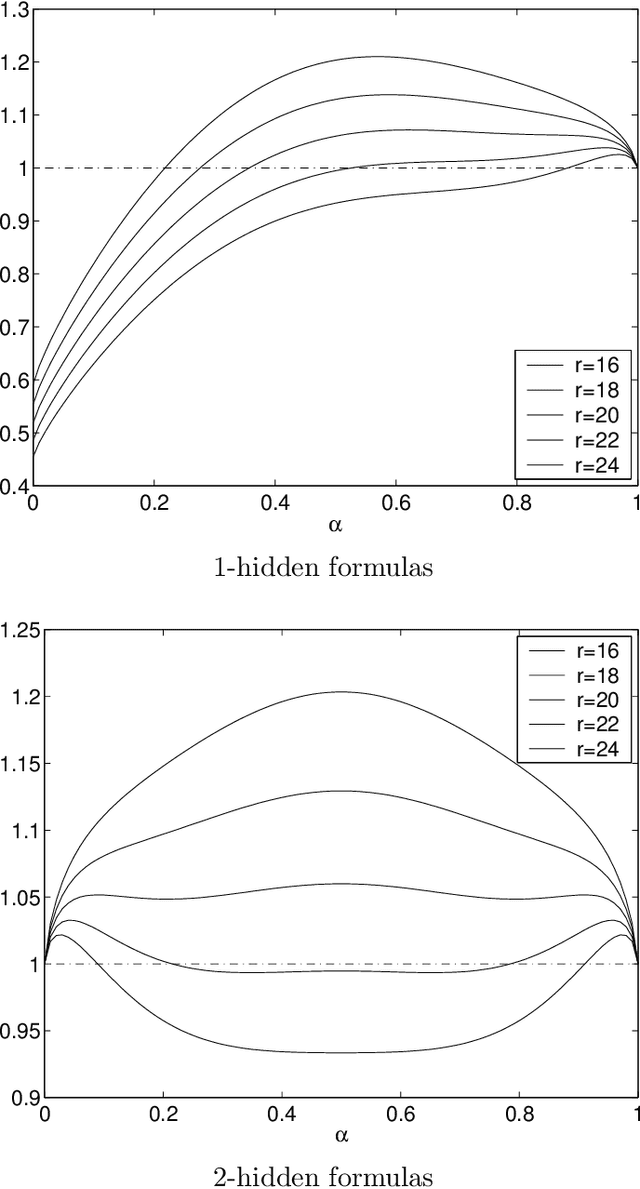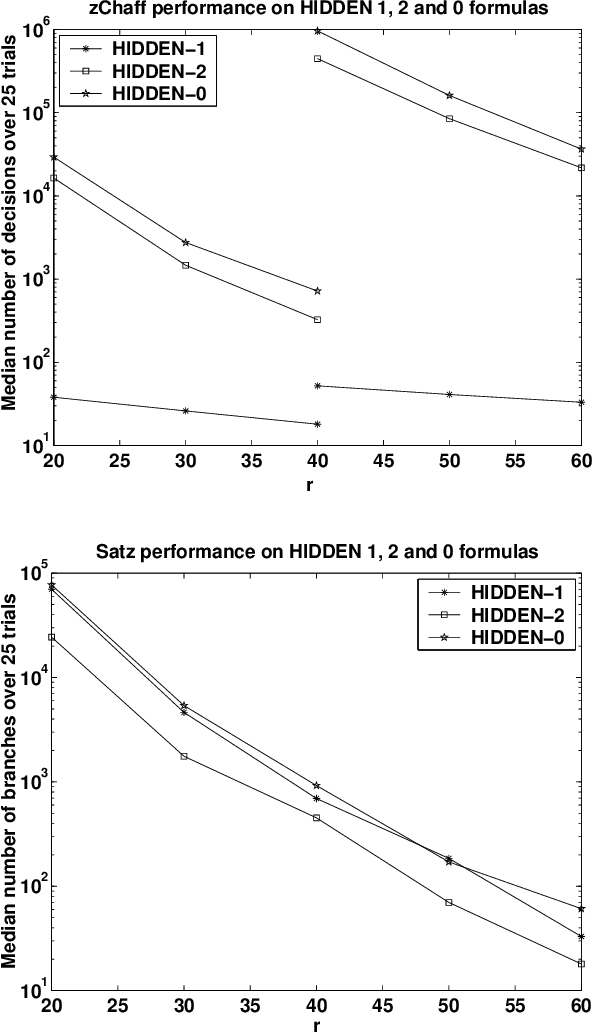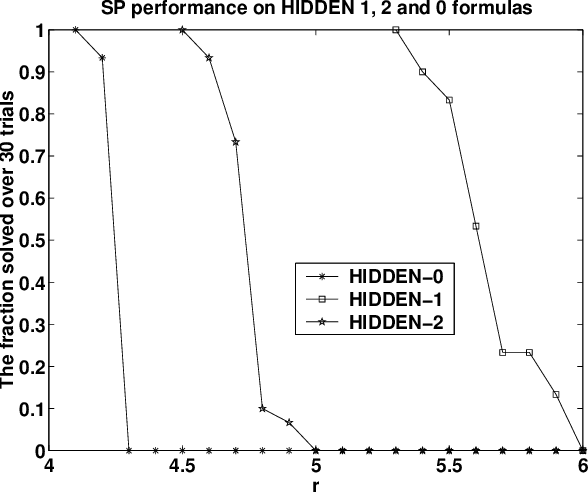Hiding Satisfying Assignments: Two are Better than One
Paper and Code
Mar 20, 2005



The evaluation of incomplete satisfiability solvers depends critically on the availability of hard satisfiable instances. A plausible source of such instances consists of random k-SAT formulas whose clauses are chosen uniformly from among all clauses satisfying some randomly chosen truth assignment A. Unfortunately, instances generated in this manner tend to be relatively easy and can be solved efficiently by practical heuristics. Roughly speaking, as the formula's density increases, for a number of different algorithms, A acts as a stronger and stronger attractor. Motivated by recent results on the geometry of the space of satisfying truth assignments of random k-SAT and NAE-k-SAT formulas, we introduce a simple twist on this basic model, which appears to dramatically increase its hardness. Namely, in addition to forbidding the clauses violated by the hidden assignment A, we also forbid the clauses violated by its complement, so that both A and complement of A are satisfying. It appears that under this "symmetrization'' the effects of the two attractors largely cancel out, making it much harder for algorithms to find any truth assignment. We give theoretical and experimental evidence supporting this assertion.
 Add to Chrome
Add to Chrome Add to Firefox
Add to Firefox Add to Edge
Add to Edge